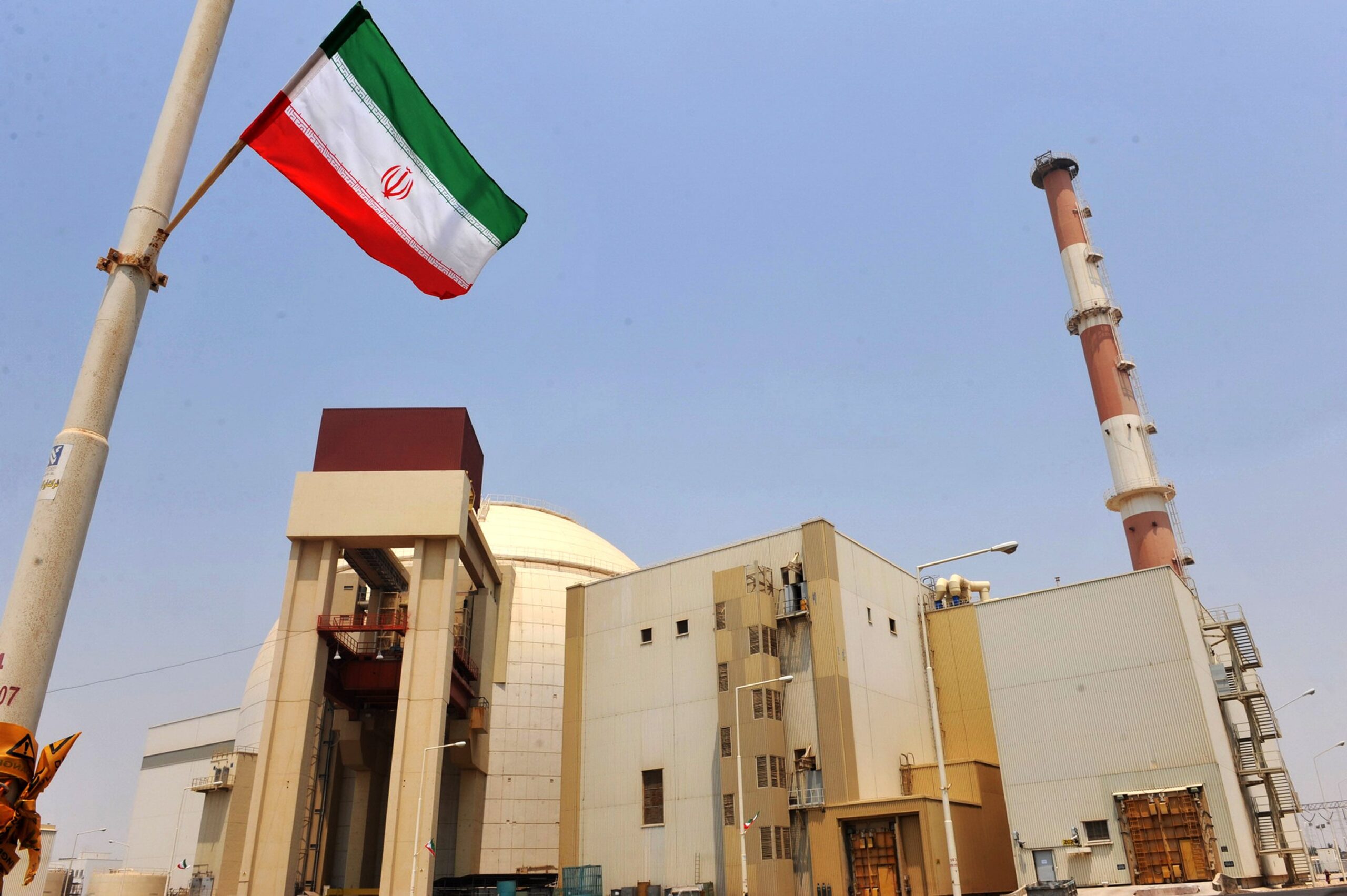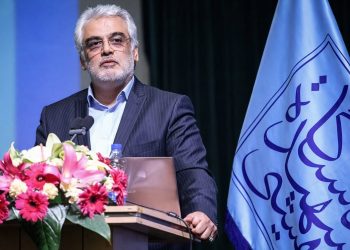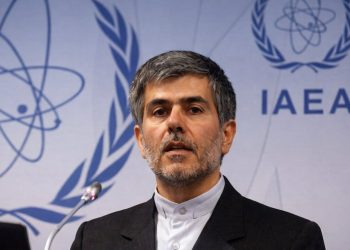Introduction
The dependence of countries on the continuous advancement of technology and scientific capabilities is undeniable. Progress in science and technology simplifies human life, helps prevent both natural and man-made crises, improves quality of life through healthcare and medicine, enhances food security in agriculture, and protects nations from the impacts of climate change in the energy sector. According to international regulations such as Article 27 of the Universal Declaration of Human Rights (https://www.un.org/en/about-us/universal-declaration-of-human-rights), Article 15 of the International Covenant on Economic, Social and Cultural Rights (https://www.ohchr.org/en/instruments-mechanisms/instruments/international-covenant-economic-social-and-cultural-rights), and Article 14 of the Additional Protocol to the American Convention on Human Rights in the Area of Economic, Social and Cultural Rights (Protocol of San Salvador) (https://www.legal-tools.org/doc/igolal/pdf), all nations have the right to enjoy the benefits and advancements of science and technology. This right is not exclusive to any specific group. Nuclear science stands as one of humanity’s significant achievements, symbolizing the scientific and technological advancement of nations. This advanced technology plays a significant role in reducing environmental pollutants and combating climate change by producing clean and sustainable energy. Additionally, it contributes to sustainable development across various fields. In nuclear medicine, it provides revolutionary diagnostic and therapeutic methods; in modern agriculture, it optimizes crop production; and in advanced industries, it enhances the quality of manufactured goods (https://www.edfenergy.com/energywise/what-are-advantages-nuclear-energy).
Iran initiated a movement several decades ago to develop nuclear technology, acquire indigenous knowledge, and establish a nuclear industry for peaceful purposes. However, significant threats and political pressure from global powers have posed serious obstacles to the continued advancement of Iran’s nuclear technology. Currently, discriminatory conditions arising from the dual policies of the anarchic international order have trampled Iran’s legitimate right to nuclear energy. This text examines the various dimensions of this issue, with a particular focus on legal matters.
The Duality of Policies Against Iran’s Nuclear Program
The Israeli regime, along with the governments of the United States, the United Kingdom, Germany, and France, has persistently asserted that the Islamic Republic of Iran is engaged in a nuclear program that is not intended for peaceful purposes. These nations characterize said program as a potential threat to international peace and security and have employed various measures to halt and undermine it. However, evidence suggests that these issues are a series of claims marked by hostility and clear political motivations. For over three decades, Benjamin Netanyahu, the current Prime Minister of the Israeli regime, has asserted—from domestic Israeli forums to international organs like the United Nations—that Iran is on the verge of acquiring nuclear weapons (https://www.aljazeera.com/gallery/2025/6/18/the-history-of-netanyahus-rhetoric-on-irans-nuclear-ambitions). It is astonishing that Netanyahu, with a track record of over three decades of exaggerating nuclear issues, still cannot distinguish between a peaceful program and a weapons production scheme. The problem in his vision appears to lie not in Iran’s nuclear facilities but in the distorted lenses of his propaganda. He speaks of the Iranian nuclear threat while facing prosecution by the International Criminal Court. For decades, the regime he represents has waged bloody wars in the region. In contrast, the Israeli regime is not a member of the Treaty on the Non-Proliferation of Nuclear Weapons (NPT) and, according to 2018 estimates, possesses approximately 80 nuclear warheads (https://www.newsweek.com/what-countries-have-nuclear-weapons-972382); Consequently, Israel’s nuclear program poses a threat to international peace and security. However, the prioritization of individual political interests over the benefits of international coexistence has shifted attention away from Israel’s nuclear program and towards Iran’s nuclear activities.
The United States government, as Israel’s primary supporter, has led campaigns to counter Iran’s nuclear program and has consistently sought to curtail its development. During the second term of the Trump administration, the U.S. adopted even harsher measures, demanding a complete cessation of uranium enrichment in Iran. The governments of the United Kingdom, France, and Germany have also aligned their policies with those of the U.S. and Israel. Together with the Israeli government, these nations orchestrated a comprehensive campaign in the 2000s that securitized Iran’s nuclear dossier, resulting in the adoption of United Nations Security Council resolutions against Iran. Multiple regimes of sanctions—including unilateral and secondary U.S. sanctions, as well as UN Security Council sanctions—were imposed on Iran. Under the pretext of a nuclear threat from Iran, extensive economic and political pressure was applied, adversely affecting the Iranian populace. These threats and pressures continue, despite the UN Charter’s emphasis on state equality and the principle of peaceful coexistence within the international system.
Iran’s Peaceful Approach to Nuclear Science
Iran approved the Statute of the International Atomic Energy Agency (IAEA) in 1958 and became one of the first countries to join the Treaty on the Non-Proliferation of Nuclear Weapons (NPT) in 1970. The Law on the Establishment of the Atomic Energy Organization of Iran, enacted in July 1974, defines the organization’s objectives as the use of atomic energy in industry, agriculture, services, the construction of nuclear power plants, and desalination facilities (https://www.aeoi.org.ir/?271532/%D9%82%D8%A7%D9%86%D9%88%D9%86-%D8%B3%D8%A7%D8%B2%D9%85%D8%A7%D9%86-%D8%A7%D9%86%D8%B1%DA%98%DB%8C-%D8%A7%D8%AA%D9%85%DB%8C); Goals align with the peaceful use of nuclear science.
Ayatollah Khamenei, the Supreme Leader of the Islamic Republic of Iran, has issued a religious decree prohibiting the use of nuclear weapons and has repeatedly elaborated on this position in various speeches and statements. In this regard, at the 16th Summit of the Non-Aligned Movement in 2012, he stated: “The Islamic Republic of Iran considers the use of nuclear, chemical, and similar weapons a great and unforgivable sin. We have proposed the slogan of ‘a Middle East free of nuclear weapons’ and remain committed to it. This does not mean relinquishing the right to peacefully utilize nuclear energy and produce nuclear fuel. The peaceful use of this energy, in accordance with international law, is the right of all countries” (https://farsi.khamenei.ir/speech-content?id=20840). Iranian officials and representatives at various levels have consistently emphasized the importance of a world free of nuclear weapons, serving as pioneers of this discourse in the international arena. This approach is reflected in statements made by Iran’s Deputy Permanent Representative at the United Nations Conference on Disarmament on January 31, 2023 (https://geneva.mfa.gov.ir/portal/NewsView/709290) and by the Minister of Foreign Affairs at the same conference in February 2025 (https://en.mfa.gov.ir/portal/newsview/762069/Iranian-FM-calls-on-world-to-boost-efforts-in-nuclear-disarmament-in-Geneva-meeting).
Iran’s Expedient Retreats
Since 2002, when the existence of nuclear facilities in Natanz and Arak was confirmed, the relationship between Iran and the IAEA has experienced significant ups and downs. The Agency sought to verify Iran’s nuclear activities, and in a demonstration of goodwill, Iran actively engaged with the IAEA. Through the establishment of several agreements, including the Sa’dabad Statement, the Brussels Agreement, and the Paris Agreement, with Germany, the United Kingdom, and France, Iran progressively accepted limitations on its nuclear program. From that time onward, Iran agreed to conduct its nuclear activities under the extensive supervision of IAEA inspectors. However, Western governments failed to uphold their diplomatic commitments at various times, prompting Iran to continue its uranium enrichment activities. Although the International Atomic Energy Agency stated that there was no conclusive evidence of Iran’s intent to develop nuclear weapons, Iran’s nuclear dossier was presented to the Security Council, leading to the adoption of the first anti-Iran resolution, Resolution 1696.
Some had accused Iran of pursuing a policy similar to that of North Korea; however, ElBaradei (then Director-General of the IAEA), stated that Resolution 1696 was an inappropriate use of the Security Council’s power against Iran. He argued that Iran, as a state party to the Treaty on the NPT and a country that had not violated its safeguards obligations, could not be compared to North Korea (https://doi.org/10.1093/acprof:oso/9780199377893.001.0001).
Iran has consistently pursued diplomacy and engaged in negotiations with representatives from UN Security Council member states, Germany, and the European Union. The report from the IAEA Director General in 2008 confirmed that all nuclear materials in Iran were being used for peaceful purposes and that Iran’s responses regarding its nuclear program aligned with the Agency’s findings. Despite this, allegations about the threatening nature of Iran’s nuclear activities persisted, leading the Security Council to adopt numerous resolutions against the country (https://doi.org/10.1093/acprof:oso/9780199377893.001.0001). Nevertheless, allegations about the threatening nature of Iran’s nuclear activities persisted, leading the Security Council to adopt numerous resolutions against Iran. In 2015, Iran and the P5+1 group (the United States, the United Kingdom, France, Russia, China, and Germany) concluded a diplomatic initiative known as the Joint Comprehensive Plan of Action (JCPOA). Under this agreement, Iran committed to significant limitations and unprecedented monitoring by IAEA inspectors to verify the peaceful nature of its nuclear program. In return, Iran was to benefit from economic and trade advantages with the lifting of international sanctions. Although the UN Security Council sanctions were suspended, the issue remained unresolved. Following the U.S. withdrawal from the JCPOA in 2018 and the subsequent inaction of European governments regarding the agreement, Iran did not realize significant benefits, and unilateral sanctions continued to be imposed. Nevertheless, during recent negotiations with the second Trump administration, Iran indicated a willingness to accept restrictions on enrichment in exchange for the removal of unilateral sanctions. This demonstrates that Iran, recognizing the anarchic nature of the international system, is willing to make prudent concessions and forgo some of its nuclear rights. However, Iran’s flexibility has not been met with an appropriate response from Western parties. The United States not only failed to honor its commitments but also intensified sanctions to maintain maximum pressure. This approach suggests that the West seeks to exploit Iran’s flexible posture rather than genuinely resolve differences through constructive and balanced dialogue.
Assassination, Sabotage, and Aggression: Targeted Violence Against Iran’s Nuclear Rights
Since the 2000s, a series of terrorist and sabotage operations have targeted Iran’s nuclear program, including the assassination of nuclear scientists and cyberattacks. During the twelve-day war waged by Israel against Iran in June 2025, a significant act of violence was perpetrated against Iran’s nuclear rights. This attack took place one day after the Board of Governors issued a resolution against Iran, adopted based on the political report of Rafael Grossi (Director General of the IAEA), while overlooking the hostile actions of Western powers toward Iran.
During its attacks, Israel martyred a large number of Iranian nuclear scientists, including Mohammad Mehdi Tehranchi, Akbar Motallebizadeh, Ahmad Reza Zolfaqari, Seyed Amir Hossein Feqhi, Abdolhamid Minouchehr, Fereydoun Abbasi, Saeed Borji, Mansour Asgari, Ali Baghaei Karimi, Ali Bakouei, and Mohammad Reza Seddighi Saber (https://www.presstv.ir/Detail/2025/06/14/749807/profiles-iranian-nuclear-scientists-assassinated-latest-israeli-aggression). The assassination of Iran’s nuclear scientists constitutes a violation of the right to life and amounts to extrajudicial killings. These criminal acts represent a clear breach of human rights, violating principles such as Article 3 of the Universal Declaration of Human Rights (https://www.un.org/en/about-us/universal-declaration-of-human-right) and Article 6 of the International Covenant on Civil and Political Rights (https://www.ohchr.org/en/instruments-mechanisms/instruments/international-covenant-civil-and-political-rights). Moreover, these acts took place within the context of an armed conflict and during aggressive operations, constituting direct attacks against civilians. This directly violates Articles 51 and 52 of Additional Protocol I to the Geneva Conventions, which explicitly prohibit armed attacks targeting civilians and civilian objects and locations (https://ihl-databases.icrc.org/en/ihl-treaties/api-1977).
The aggression by the Israeli regime against Iran, later supported by the United States, was carried out under the pretext of countering the threat posed by Iran’s nuclear program. However, which international norms authorize such actions? The UN Charter permits the use of force only in cases of self-defense and within the framework of the collective security system of the United Nations. The attack by Israel and the United States was not authorized by the Security Council and did not meet the conditions for self-defense, which require an armed attack by a state. Therefore, it constitutes a clear violation of Article 2(4) of the UN Charter, which prohibits the use of force, and represents an act of aggression against Iran’s territorial integrity. Claims about the threatening nature of Iran’s nuclear program were made despite Rafael Grossi stating during the conflict that there was no evidence of Iran attempting to build a nuclear bomb (https://www.presstv.ir/Detail/2025/06/18/749985/iaea-chief-rebuffs-trump-admits-no-evidence-iran-building-nuclear-weapons). On the other hand, even if the Security Council authorizes the use of force or it is justified under self-defense, International Humanitarian Law (IHL) imposes strict limitations on military operations, including a prohibition on attacks against nuclear facilities.
Under Article 56 of Additional Protocol I (https://ihl-databases.icrc.org/en/ihl-treaties/api-1977/article-56) and customary IHL (https://ihl-databases.icrc.org/en/customary-ihl/v1/rule42), attacks on nuclear power plants are prohibited. United Nations Security Council Resolution 487 (1981) (https://digitallibrary.un.org/record/22225/files/S_RES_487%281981%29-EN.pdf), concerning Israel’s attack on the Osirak nuclear reactor, along with IAEA Resolution 444 (https://www.iaea.org/sites/default/files/gc/gc29res-444_en.pdf), affirms that attacks on all nuclear facilities—whether reactors or power plants—constitute a violation of international law and the UN Charter, thereby threatening international peace. The Chernobyl disaster starkly illustrates the devastating consequences of radioactive release, affecting millions of lives and the environment’s health for decades. It is noteworthy that these attacks have not been condemned by the IAEA, the agency under whose rigorous inspections Iran, as a committed party to the Treaty on the NPT, has consistently operated. In contrast, Israel, which has not even joined the NPT and has maintained its nuclear program in secrecy, continues to violate Iran’s sovereignty and international law with U.S. support. This double standard and the global community’s silence in the face of hostile acts against a peace-seeking nation raise serious questions about fairness and justice in the international system. Such attacks not only pose a risk to regional and global security but also reflect a discriminatory and dualistic policy that undermines peace and stability. It is particularly striking that the United States supported UN Security Council Resolution 487 in 1981, which condemned Israel’s attack on Iraq’s nuclear facilities. Yet, in 2025, the United States itself took military action against Iran’s nuclear installations (https://www.justsecurity.org/116153/article-51-united-states-letter-iran-nuclear/).
Conclusion
Iran’s right to the peaceful use of nuclear energy is undeniable under international law. However, Western double standards and hostile measures—such as sanctions, the assassination of scientists, and military attacks—have infringed upon this right. The recent aggression by the Zionist regime and the United States against Iran’s nuclear facilities constitutes a blatant violation of the UN Charter and international law, particularly as the IAEA has reported no evidence of any diversion in Iran’s nuclear program. The global community’s silence in the face of these acts of aggression reflects a profound injustice within the international system. Iran has consistently reaffirmed its commitment to peaceful nuclear energy, but as long as hegemonic powers continue their policies of coercion, global security remains at risk.
References
- Universal Declaration of Human Rights (1948), https://www.un.org/en/about-us/universal-declaration-of-human-rights.
- International Covenant on Economic, Social and Cultural Rights (1966), https://www.ohchr.org/en/instruments-mechanisms/instruments/international-covenant-economic-social-and-cultural-rights.
- Additional Protocol to the American Convention on Human Rights in the Area of Economic, Social, and Cultural Rights: Protocol of San Salvador (1988), https://www.legal-tools.org/doc/igolal/pdf.
- Moses, Marta, What are the advantages of nuclear energy?, (28 July 2020), https://www.edfenergy.com/energywise/what-are-advantages-nuclear-energy.
- Aljazeera, The history of Netanyahu’s rhetoric on Iran’s nuclear ambitions, (18 Jun 2025), https://www.aljazeera.com/gallery/2025/6/18/the-history-of-netanyahus-rhetoric-on-irans-nuclear-ambitions.
- Croucher, Shane, Which Countries Have Nuclear Weapons?, (12 June 2018), https://www.newsweek.com/what-countries-have-nuclear-weapons-972382.
- Law of Atomic Energy Organization of Iran, (July 1974), https://www.aeoi.org.ir/?271532/%D9%82%D8%A7%D9%86%D9%88%D9%86-%D8%B3%D8%A7%D8%B2%D9%85%D8%A7%D9%86-%D8%A7%D9%86%D8%B1%DA%98%DB%8C-%D8%A7%D8%AA%D9%85%DB%8C. (In Persian)
- Statements of the Supreme Leader of the Revolution at the 16th Summit of the Non-Aligned Movement, (30 August 2012), https://farsi.khamenei.ir/speech-content?id=20840. (In Persian)
- Statement by Iran’s Deputy Permanent Representative on Nuclear Weapon Free Zone, (31 January 2023), https://geneva.mfa.gov.ir/portal/NewsView/709290.
- Iranian FM calls on world to boost efforts in nuclear disarmament in Geneva meeting, (25 February 2025), https://en.mfa.gov.ir/portal/newsview/762069/Iranian-FM-calls-on-world-to-boost-efforts-in-nuclear-disarmament-in-Geneva-meeting.
- Joyner, Daniel H, Iran’s Nuclear Program and International Law: From Confrontation to Accord, (Oxford: Oxford Academic, 2016), https://doi.org/10.1093/acprof:oso/9780199377893.001.0001.
- Qarehgozlou, Maryam, Prominent Iranian Nuclear Scientists Assassinated In Latest Israeli Aggression, Press TV, (14 June 2025), https://www.presstv.ir/Detail/2025/06/14/749807/profiles-iranian-nuclear-scientists-assassinated-latest-israeli-aggression.
- Universal Declaration of Human Rights (1948), https://www.un.org/en/about-us/universal-declaration-of-human-rights.
- International Covenant on Civil and Political Rights 1966. https://www.ohchr.org/en/instruments-mechanisms/instruments/international-covenant-civil-and-political-rights
- Protocol Additional to the Geneva Conventions of 12 August 1949, and relating to the Protection of Victims of International Armed Conflicts (Protocol I), 1977, https://ihl-databases.icrc.org/en/ihl-treaties/api-1977.
- Press TV, IAEA chief rebuffs Trump, says no evidence Iran is building nuclear weapons, (18 June 2025), https://www.presstv.ir/Detail/2025/06/18/749985/iaea-chief-rebuffs-trump-admits-no-evidence-iran-building-nuclear-weapons.
- Protocol I, Article 56, https://ihl-databases.icrc.org/en/ihl-treaties/api-1977/article-56.
- Customary International Humanitarian Law, Rule 42, https://ihl-databases.icrc.org/en/customary-ihl/v1/rule42.
- Security Council, Res 487, https://digitallibrary.un.org/record/22225/files/S_RES_487%281981%29-EN.pdf.
- Atomic Energy Agency, Res 444, https://www.iaea.org/sites/default/files/gc/gc29res-444_en.pdf.
- Finucane, Brian, Assessing the U.S. Article 51 Letter for the Attack on Iran: Legal Lipstick on the Use of Force Pig, Just Security, (3 July 2025), https://www.justsecurity.org/116153/article-51-united-states-letter-iran-nuclear/.





